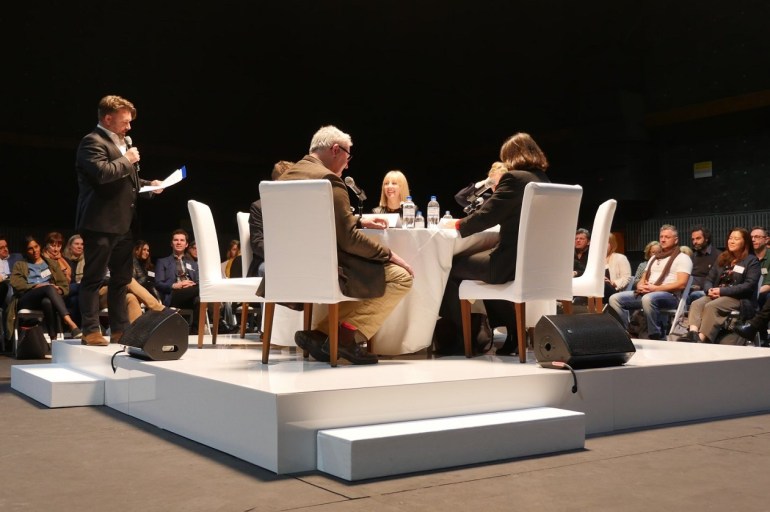AWG executive director Claire Pullen has called on the creative industry to unite in addressing AI copyright concerns as a priority as stakeholders prepare to discuss the sector’s best approach to the technology.
Pullen is among the speakers for Screen Producers Australia (SPA)’s sixth PRISM forum – the first since 2018 – which will focus on how Generative AI intersects with the screen industry.
Ethics Centre executive director Simon Longstaff is set to guide three open conversations at Sydney’s Disney Studios tomorrow as part of the event – ‘Managing Disruption – How can the industry navigate the impact of AI on production workflows and distribution models?’, ‘Authenticity: Creation or Generation – What are the implications of AI for human creativity, and how do we preserve authenticity in a world of machine-generated content?’, and ‘Who Shares in the Benefits? – How can the benefits of AI systems trained on massive datasets be distributed more equitably across the industry?’
Other speakers include SPA Council President Tracey Vieira, Australian National University professor Angie Abdilla, Screen Australia COO Grainne Brunsdon, AI inventor Charlie Chan, Leonardo.ai co-CEO J.J.Fiasson, and Australian Association of Voice Actors (AAVA) president Simon Kennedy.
Speaking about tomorrow’s event, SPA CEO Matthew Deaner said he hoped that by facilitating the conversations, speakers would be able to share their insights and differentiate between fact and fiction regarding AI.
“We want attendees to come away from the event feeling inspired and better equipped to incorporate AI into how their screen businesses operate, understanding we have a long road ahead regarding how AI is properly used and regulated in the Australian screen sector,” he said.
The PRISM event comes more than 12 months after the AWG called for guidelines to ensure safe and responsible AI use that did not harm or exploit consumers, facilitated and assisted creative workers, and allowed artists to derive a fair income for creative works and have copyright protections. The statement came on the back of Australian authors being found on a dataset of pirated ebooks, known as Books3, used to train generative AI.
Since then, Pullen has joined international cultural leaders in discussing the technology’s potential impacts at Canada’s Promoting Our Cultures in the Digital Age conference and appeared before a Federal Senate inquiry into the risks and opportunities of AI adoption.
Speaking to IF, she stressed the importance of more of the industry joining the fight against AI theft.
“We have been working on this now for over 12 months, and the ‘us’ there is the AWG, Australian Directors’ Guild, AWG Authorship Collecting Society, Australian Screen Directors Authorship Collecting Society, the Composers’ Guild, the Cinematographers, the Production Designers, MEAA, as well as APRA AMCOS, and the Screen Editors Guild,” she said.
“The creative worker guilds have been right out front, leading on AI, talking about the exciting possibilities that may be there for us once we deal with the theft that’s already happened.
“I think everyone’s developed a nuanced argument about it, which says, ‘Yes, let’s talk about the possibilities and how this gets integrated into our work’, but we’re not going to sweep under the rug the wholesale theft of our work that has already happened.
“Government can and should do both at the same time as should the industry.”
Regulatory progress was made at a federal level in September when the government proposed 10 mandatory guardrails designed to stop AI models from using content created by artists without their permission.
It was followed by the NSW Government Response to the Parliamentary Inquiry into AI in October, which vowed to “advocate the Australian Government for greater protection of the copyright and intellectual property of those working in creative industries in light of the challenges presented by generative artificial intelligence”.
Pullen believed governments in Australia were serious about looking at the problems associated with AI, something that was by no means universal.
“There are some countries that are just kind of going, ‘Oh, this all sounds really good, so why don’t we just give it a whirl and see what happens?’
“Conversely, there are jurisdictions like the EU that are taking it very seriously and are well ahead of us on regulation, so it’s a bit of a mixed bag.”
“At an industry level, I think there’s a certain deal of buying into the hype and not really thinking through the implications.”


